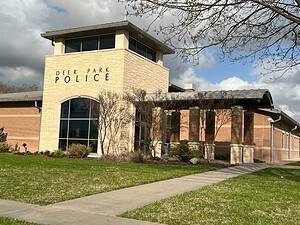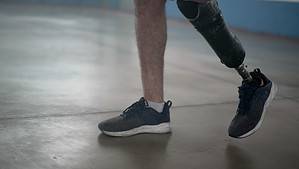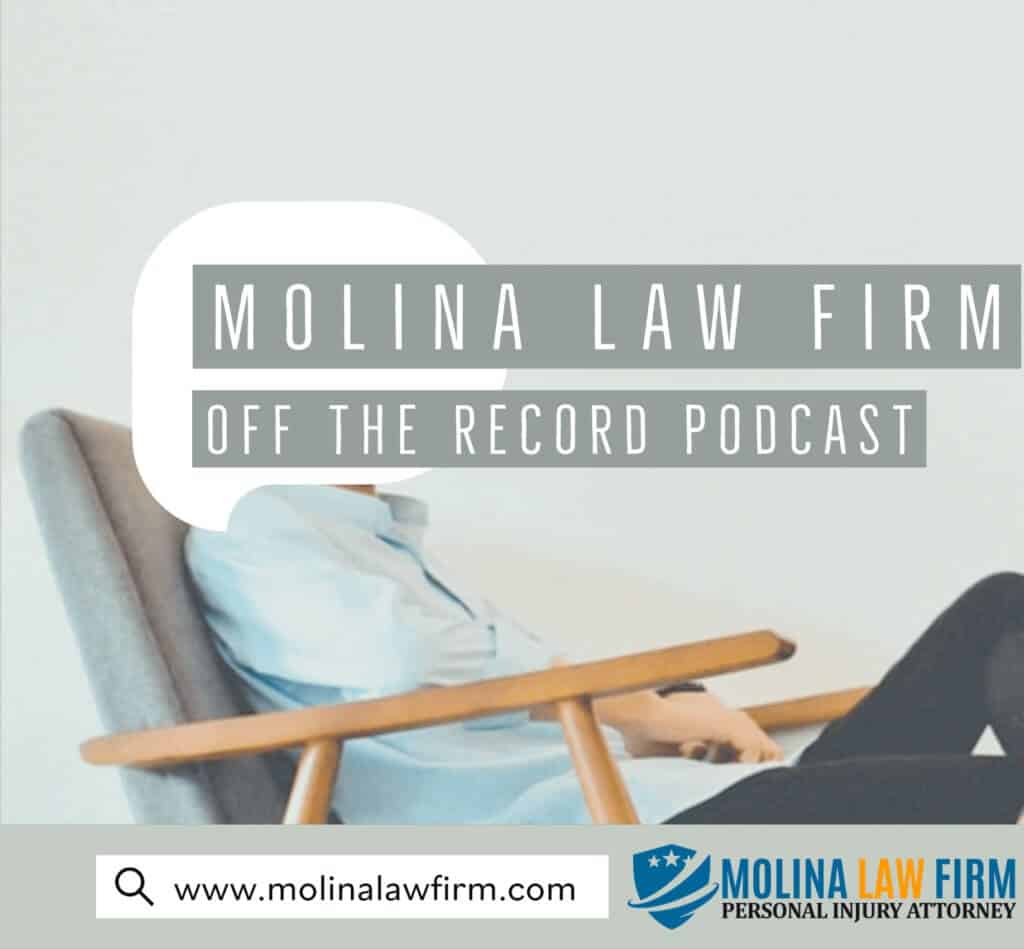Deer Park Amputation Injury
 Amputation injuries are physically tragic and emotionally exhausting. An amputation injury is the loss or removal of a body part due to an accident or injury. It can have significant physical, emotional, and financial impacts on individuals. If you have suffered a Deer Park amputation injury, seeking expert legal guidance is crucial.
Amputation injuries are physically tragic and emotionally exhausting. An amputation injury is the loss or removal of a body part due to an accident or injury. It can have significant physical, emotional, and financial impacts on individuals. If you have suffered a Deer Park amputation injury, seeking expert legal guidance is crucial.
Molina Law Firm is located at the Gulf Freeway and Fuqua, conveniently near Deer Park and the 77536 zip code.
Contact Rick Molina and Molina Law Firm at (281) 922-4300 for a free accident consultation. Rick Molina is intimately aware of all of the issues related to amputation injuries since he has represented people with these injuries and also has family members who have suffered from amputation injuries.
Damages for a Deer Park Amputation Injury
 Accident amputation injuries can have a significant impact on multiple aspects of your life, including physical, emotional, and financial well-being. It is crucial to understand the available damages and the legal process involved in seeking compensation for your injury. Identifying liability and building a strong amputation injury claim are essential steps to ensure you receive the compensation you deserve.
Accident amputation injuries can have a significant impact on multiple aspects of your life, including physical, emotional, and financial well-being. It is crucial to understand the available damages and the legal process involved in seeking compensation for your injury. Identifying liability and building a strong amputation injury claim are essential steps to ensure you receive the compensation you deserve.
Identifying Liability and Your Amputation Claim
Liability must be established against the negligent party. When pursuing an amputation injury claim, it is important to determine who is liable for the accident that led to your injury. This can be a complex process, as multiple parties may be responsible, such as drivers, employers, or healthcare professionals. Building a strong case requires gathering evidence, conducting investigations, and working with experts who can establish liability. Consulting with an experienced amputation injury lawyer can help you navigate the legal complexities and build a solid claim.
Non-Economic Damages
Amputation injuries can cause immense physical pain, emotional suffering, and a loss of enjoyment of life. These non-economic damages are compensable under the law. Such damages aim to address the intangible losses you have experienced, including pain and suffering, mental anguish, and loss of consortium. An amputation injury lawyer can help you quantify these damages and present a compelling case to ensure you are fairly compensated.
Economic Damages
In addition to non-economic damages, accident amputation injuries can result in substantial economic losses. Medical expenses, including surgeries, rehabilitation, prosthetics, and ongoing care, can quickly accumulate and burden you financially. Additionally, the inability to work due to your injury can lead to a loss of income and future earning capacity. Economic damages aim to compensate you for these financial hardships and ensure you can cover your expenses now and in the future.
Emotional and Psychological Impact of a Deer Park Amputation Injury
Amputation injuries can have a profound emotional and psychological impact on individuals. Coping with the emotional challenges and addressing psychological factors are crucial for a successful recovery.
Emotional Challenges After an Amputation
After an amputation, individuals may experience a range of emotions such as grief, anger, frustration, and loss. It is important to acknowledge and express these feelings and surround oneself with a support system.
- Seek support from family and friends: Sharing your emotions and experiences with loved ones can provide comfort and understanding during this difficult time.
- Join a support group: Connecting with other amputees who have undergone similar experiences can be valuable for gaining insights, advice, and support.
- Consider therapy or counseling: Working with a mental health professional can help address body image concerns, improve self-confidence, and facilitate acceptance and adjustment.
- Practice self-care: Engage in activities that bring you joy and provide a sense of normalcy. Taking care of your physical and mental well-being is essential in the recovery process.
Psychological Factors in Recovery
In addition to emotional challenges, addressing psychological factors is essential for a successful recovery after an amputation.
- Body image concerns: The alteration of one’s physical appearance due to amputation can impact self-esteem and body image. A mental health professional can help navigate through these concerns and develop coping strategies.
- Adjustment and acceptance: Accepting the loss of a limb and adapting to a new way of life can be a challenging process. Therapy can provide the necessary tools to cope with these changes and develop resilience.
- Maintaining social connections: Isolation and withdrawal can exacerbate emotional struggles. Staying socially connected and participating in activities and hobbies can contribute to a sense of belonging and well-being.
- Setting realistic expectations: It is important to set realistic expectations for oneself during the recovery process. Celebrating small victories and focusing on progress can help maintain motivation and improve mental well-being.
Mental Health Support and Building Resilience
Seeking mental health support is essential in the amputation recovery process. Working with a mental health professional can provide the necessary guidance and support to address emotional and psychological challenges.
- Look for professionals experienced in working with amputees: Finding a mental health professional with expertise in working with individuals who have undergone amputations can ensure specialized care and understanding.
- Explore different forms of therapy: Various therapeutic approaches, such as cognitive-behavioral therapy or acceptance and commitment therapy, can help individuals develop coping strategies, build resilience, and improve mental well-being.
- Engage in self-help resources: There are numerous self-help resources available that cater specifically to the emotional and psychological challenges faced by amputees. These resources can offer guidance, coping mechanisms, and support.
- Stay connected with support networks: Connecting with other amputees through online platforms or local support groups can foster a sense of community and provide opportunities for shared experiences and advice.
Types of Amputation Surgery
Amputation surgery involves the removal of all or part of a limb. There are different types of amputation surgery that can be performed based on the specific needs and circumstances of the individual. These types include:
- Partial Amputation: In a partial amputation, only a portion of the limb is removed while trying to preserve as much function and length as possible. This type of amputation may be performed when the affected area can be successfully removed without jeopardizing the overall function of the limb.
- Complete Amputation: Complete amputation is necessary when the entire limb is affected or when there are medical reasons that require the complete removal of the limb. This type of amputation may be performed to remove tumors, control infection or alleviate chronic pain.
- Revision Amputation: Revision amputation may be performed to improve the functional outcome or address complications that arise after the initial amputation surgery. This procedure may involve further removal of tissue, bone, or revision of the amputation site to enhance prosthetic fitting and overall functionality.
Each type of amputation surgery is carefully considered and performed based on the individual’s condition and specific needs. The goal is to provide the best possible outcome in terms of functionality and quality of life for the individual.
Post-Amputation: Care, Treatment, and Rehabilitation
Essential Post-Surgical Wound Care
After amputation surgery, proper post-surgical wound care is crucial for promoting healing and preventing infections. It involves keeping the incision site clean and dry, changing dressings regularly, and following the instructions provided by your healthcare team. By diligently following these guidelines, you can minimize the risk of complications and ensure a smoother recovery process.
Phantom Pain and Emotional Toll
Phantom pain, the sensation of pain in the absent limb, is a common occurrence after amputation. It can have a significant impact on both physical and emotional well-being. Seeking appropriate pain management techniques, such as medication or alternative therapies, can help alleviate this discomfort. Additionally, addressing the emotional toll of amputation is crucial. Connecting with support groups, attending counseling sessions, or participating in activities that promote emotional well-being can aid in adapting to life post-amputation.
Physical Therapy and Prosthetic Adaptation
Physical therapy plays a vital role in post-amputation rehabilitation. By working with a physical therapist, you can regain mobility, strength, and functionality. Physical therapy exercises and techniques are tailored to your specific needs and goals. In addition to physical therapy, adapting to a prosthetic limb is an essential part of the recovery process. With the guidance of a prosthetist, you can learn how to use and maintain your prosthetic limb effectively. Adjusting to a prosthetic limb may take time and patience, but with perseverance, you can successfully integrate it into your daily activities.
Causes of Amputation Injuries
Amputation injuries can occur due to various causes, ranging from traumatic accidents to medical malpractice. Understanding the common causes of amputation injuries is crucial for prevention and determining liability in legal claims.
- Traumatic Accidents: Severe limb damage or complete limb loss that requires amputation can result from traumatic accidents such as car crashes, workplace incidents, or sports-related injuries.
- Medical Malpractice: Amputation injuries can also occur as a result of surgical errors or misdiagnosis in medical procedures. Medical malpractice cases involving amputation require comprehensive investigation and expert legal representation.
- Workplace Incidents: In some cases, hazardous work environments or unsafe practices can lead to severe accidents causing amputation injuries. Employers have a responsibility to maintain a safe workplace and provide adequate training and protection for employees.
By understanding the causes of amputation injuries, individuals and organizations can take proactive measures to prevent these incidents and ensure the safety and well-being of everyone involved. In legal claims, identifying the cause and establishing liability is essential in seeking appropriate compensation.
How Molina Law Firm Can Assist in Your Amputation Lawsuit
Dealing with an amputation injury and pursuing a legal claim can be overwhelming. Molina Law Firm is dedicated to providing expert legal assistance for accident amputation lawsuits. With their extensive experience and deep understanding of personal injury cases, they can guide you through the legal process, protect your rights, and fight for the maximum compensation available to you. Consult Molina Law Firm today to receive the professional support and advocacy you need to move forward with your amputation injury claim.
If you have been seriously injured in a Deer Park, Texas accident, it is important that you get an experienced personal injury attorney to help you. SEEK JUSTICE. Contact us Today for a Free Accident Consultation.
Free Accident Case Review
If you or a loved one has suffered an injury in an accident, fill out the form below to start your free case review.
Common Types of Auto Accidents in Deer Park
For fastest service call us!
If this is an urgent matter, please consider calling us instead at (281) 922-4300 or click on the phone icon on the left.
Visit our office or we can come to you!
What To Do After a Deer Park Automobile Accident?
Frequently Asked Questions About Car Accidents
In most car accidents, the at-fault driver and the insurance carrier are liable for all claims resulting from the accident. Sometimes, when the police determine that one vehicle was not completely at fault, then more than one person may be liable and pay for damages. Your personal injury attorney can help you get the compensation you deserve after your car accident.
In Texas, a person that is the majority at fault for an accident may not recover damages. You should seek counsel to conduct the necessary investigation in this situation.
Insurance companies are looking out for their own financial best interests. You will need to hire an attorney to look out for your interests. Once you accept a settlement, then you will be prevented from any future recovery. I normally do not recommend accepting a quick settlement when someone does not have an attorney.


